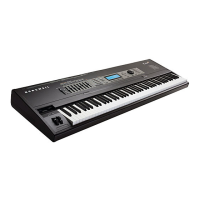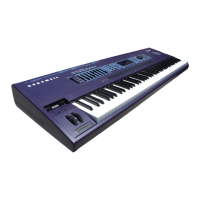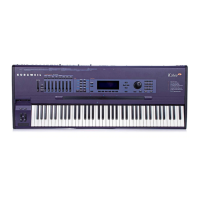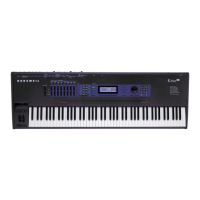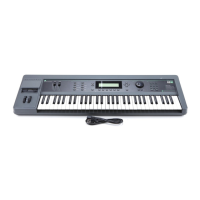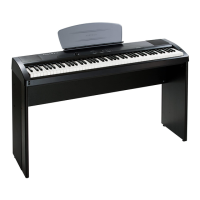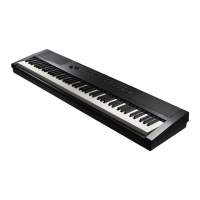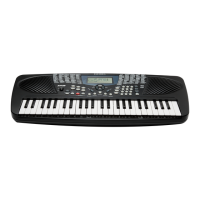Program Edit Mode
The Arpeggiator Function
7-56
The Arpeggiator Function
e Arpeggiator takes note input from the keyboard (or via MIDI) and outputs a rhythmic
and/or melodic pattern of MIDI notes. e Arpeggiator can aect both the internal
programs and external MIDI instruments.
e Arpeggiator processes notes by playing them repeatedly, and/or transposing them
up and down the keyboard. You have control over note output velocity, order, duration,
transposition, and more. You can control several arpeggiator parameters in real time. You
can also assign and edit specic patterns for note shifting, velocity shifting, and duration,
either as separate patterns, or as a combination of all three in Step Sequencer mode. e
Arpeggiator also has several dierent “latch” settings, which allows the arpeggiator to
continue to play after you have released the keys.
Note that if you play notes faster than the Arpeggiator’s current tempo, each subsequent
note will be added to the arpeggiation at the next division of a beat. With some arpeggiator
settings this can cause a lag between the time you play the note and the time you hear it in
the arpeggiation.
Arp On/Off Switch
e arpeggiator can be toggled on and o with the front panel Arp On/O switch. is
changes the “State” parameter of the Program Arpeggiator. In Multi Mode, the arp state can
also be assigned to a dierent Forte SE physical controller by using Controller destination
number 147 (Arp).
Arp Soft Button
Pressing the Arp soft button brings up the Arpeggiator editor, where you can adjust many
parameters.
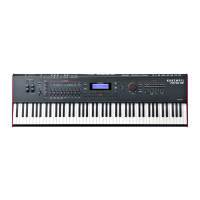
